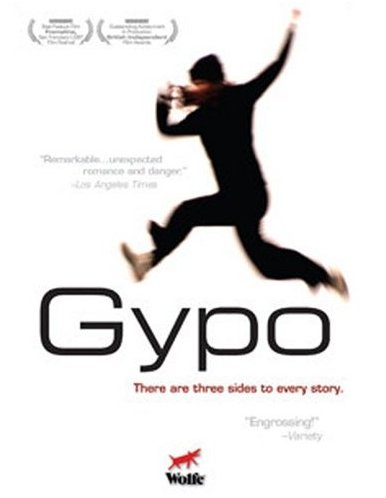Gypo review by Jackass Tom
Gypo centers a lower to middle class family in England. Helen and Paul are struggling to get by and of course that leads to their struggles to get along. Money is tight these days and with a rising population of refugees flooding the job market work become scarce. Their immature and unmarried daughter, Kelly, recently had a child which she clearly did not want to have and Helen seems to do most of the raising. Paul runs a carpet laying business which is a nickel and dime gig that pays the bills. A young refugee girl from Czech Republic named Tasha enters their life through their daughter and creates an instant conflict. Helen finds her to be a delightful girl and a breathe of fresh air, while Paul aggressively sees her to as a second class citizen barely worth acknowledging. Tasha herself has a story. She and her mother are Roma Gypsies running from a pair of abusive husbands. England provides its own challenges for the pair (jobs aren’t as easy to find for foreigners) but at least it provides some sort of physical stability.
The movie itself takes place within a few days. The narrative is repeated three times from three different perspectives, that of Helen, Paul and Tasha. With each new side of the story something different is learned. And with each story, something always seems to change based on each character’s bias. First we hear Helen’s story. Helen befriends Tasha because they can talk and get along in ways she can’t with any one else; and because she needs an escape from her abusive and cruel husband. He leaves her, and Helen runs off to find Tasha who she fears is in danger. Paul shows himself in a less abusive light. Instead of being aggressive towards his wife he is the one being verbally berated by a mean old sour Helen. He portrays himself as just a sad husband who is out of love with a mean old nagging wife and driven to hate foreigners who threaten his livelihood. In the end Helen says she no longer loves him and he courteously leaves her the house. In Tasha’s story, we see that her relationship with Helen is more than a friendship, it is romantic. Tasha and her mother are subject to violent racism on the streets, and in the end are found and kidnapped by their husbands.
This movie is Dogme95 film 37: Gypo. For those of you who do not know of Dogme95 or did not read Matt Fuerst’s review of The Celebration, let me give a brief summary: handheld cameras, shot on location, only diegetic sounds, no artificial props and no genres. It is essentially the barebones of filmmaking, accessible to anyone with a camera and an idea. Gypo is obviously shot using this method. The scenes have that “shot on my mother-in-law’s Sony Panscan” feel. I’m not sure if the world is ready to accept Dogme95 on the big screen yet. For now it’s stuck in the indy film circuits for people who care more about storytelling than they do with camera tricks (think more Bazin, less Eisenstein). The Dogme95 aspect gave this movie a grainy simplicity although it would have worked just as well shot in a more standard style.
The storytelling aspect was engaging and interesting even if the subject matters were fairly foreign. I enjoyed how the director played each character’s story in such a different way. At times I found myself looking for the personal inconsistencies in each story; inconsistencies that were purposely put in the story because the characters themselves withhold the truth from themselves and filter out information that they are not prepared to show. Each story had some interesting contrasts with the other two; Helen’s relationships with both her husband and Tasha were the most contentious. After viewing the movie I had the feeling that Helen’s stories were the least plausible because it also felt like she hid the most; she never revealed any sort of romantic relationship with Tasha, so does that mean she was repressing it?
Gypo is definitely worth seeing for the indy cinephile who likes seeing non-traditional narratives and even some non-traditional lifestyles. It’s a bit rough around the edges in parts but that may help give the film its earthy tones.





6 out of 10 Jackasses blog comments powered by Disqus
Search
Gypo

IMDB Link: Gypo
DVD Relase Date: 2006-10-17
DVD Aspect Ratio: 1.85:1
DVD Extras: Commentary from Director Dunn, Behind the scenes, Trailer